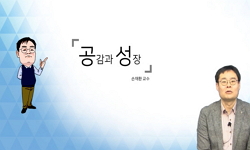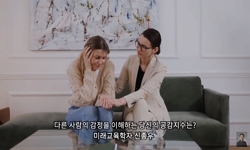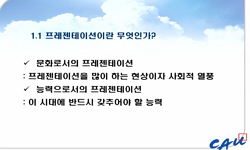Empathy는 130년 전 독일 철학에서 각인된 독일어 "Einfühlung"의 영어 번역어로서 1909년에 만들어진 개념이다. “Einfühlung”은 원래 예술 작품이나 자연의 형태에 관찰자의 감정이나 생각을 투사�...
http://chineseinput.net/에서 pinyin(병음)방식으로 중국어를 변환할 수 있습니다.
변환된 중국어를 복사하여 사용하시면 됩니다.
- 中文 을 입력하시려면 zhongwen을 입력하시고 space를누르시면됩니다.
- 北京 을 입력하시려면 beijing을 입력하시고 space를 누르시면 됩니다.
https://www.riss.kr/link?id=A107184833
- 저자
- 발행기관
- 학술지명
- 권호사항
-
발행연도
2020
-
작성언어
-
-
주제어
공감 ; 의사-환자 관계 ; 의료인문학 ; 의학 패러다임 ; 의학교육 ; Empathy ; Physician-Patient Relation ; Medical History ; Medical Paradigm ; Medical Education
-
등재정보
KCI등재
-
자료형태
학술저널
- 발행기관 URL
-
수록면
225-254(30쪽)
-
KCI 피인용횟수
0
- DOI식별코드
- 제공처
- 소장기관
-
0
상세조회 -
0
다운로드
부가정보
국문 초록 (Abstract)
Empathy는 130년 전 독일 철학에서 각인된 독일어 "Einfühlung"의 영어 번역어로서 1909년에 만들어진 개념이다. “Einfühlung”은 원래 예술 작품이나 자연의 형태에 관찰자의 감정이나 생각을 투사하는 것을 의미하였다. 그러나 심리학자 칼로저스의 개념을 토대로 하고 현재 보편적으로 널리 사용되고 있는 공감의 개념은 원래의 의미와 완전히 다르게 타자의 관점에서 타자의 생각이나 감정을 이해하고 존중하며 수용하는 것을 의미한다.
의학에 공감 개념을 본격적으로 도입한 사람은 헝가리 출신의 의사이자 정신분석가인 밸린트로 알려져 있다. 그는 1950년대에 공감을 토대로 하는 칼 로저스의 고객 중심 상담 개념에 착안하여 '환자 중심 의학'의 개념을 창안하였다. 그 이후로 공감은 의학에서 활발히 연구되고 교육되고 있다.
공감은 의학의 발달사와 직접적인 상호 관련성을 가지고 있다. 질병에 대한 과학적 진단이 이루어졌지만 특별한 약물이나 치료 수단이 없었던 근대 의학에서 의사들은 치료 수단으로 환자와의 친밀하고 공감적인 관계를 활용하였다. 그럼으로써 그들은 환자의 환대와 존경을 받았다. 제 2차 세계 대전 이후 본격적으로 시작된 현대 의학은 질병이 신체 조직 일부의 훼손 또는 기능적 장애라고 여기는 생의학적 모델로 발전하였다. 또한 현대 의학은 새로 개발된 치료제와 의료기기를 통해서 이전에는 치료할 수 없었던 다양한 질병을 치료할 수 있었다. 하지만 현대의학이 전적으로 자연과학적 지식과 치료제 및 기술에 의존함으로써 전인적 인격체로서의 환자와 그들의감정이 무시되었다. 이에대해서 환자들은의료인에 대해서 분노와 불신 그리고 낮은 순응도와 반감으로 반응하였다. 이 과정에서 의사의 직업 만족도와 삶의 질이 현격히 낮아지게 되었다. 이와 같은 현대 의학의 한계와 문제점에 대한 반작용으로 포스트모던 의학이 도입되었다. 포스트모던 의학에서는 환자에 대한 전인적 관념과 질병의 진단과 치료와 관련된 사회 심리적 요인 및 의사와 환자 간의 친밀하고 공감적 관계의 중요성이 강조된다.
인간은 사회적 존재로서 타인으로부터 이해되고 존중되며 수용되기를 바라는 인정과 공감의 욕구를 가지고 있다. 인간은 그러한 인정과 공감의 욕구가 충족될 때야 비로소 안정적으로 존재할 수 있고 행복하게 살 수 있다. 의사도 직업 만족도와 삶의 질을 위해서 특히 환자로부터의 인정과 공감을 받는 것이 매우 중요하다. 공감은 상호 호혜성의 원리를 기반으로 이루어진다. 다시 말해서 타자로부터의 공감은 타자에 대한 공감의 보상으로 이루어지는 것이다. 이것이 의사가 공감능력을 가져야하는 이유이다.
다국어 초록 (Multilingual Abstract)
The term "empathy" is the English translation of the German word "Einfühlung", coined in German philosophy 130 years ago. Einfühlung originally meant projecting the feelings or thoughts of the observer into the object like a work of art or shape in ...
The term "empathy" is the English translation of the German word "Einfühlung", coined in German philosophy 130 years ago. Einfühlung originally meant projecting the feelings or thoughts of the observer into the object like a work of art or shape in nature being observed. However, the concept of empathy, which is currently widely used, has developed a completely different meaning. The modern concept of empathy, based on the views of Carl Rogers, means understanding, respecting, and accepting others’ thoughts or feelings fromtheir point of view.
It was Balint who introduced Carl Rogers' concept of “client-centered counselling derived from empathy” into medicine in the 1950s. He first introduced the term “holistic medicine,” as opposed to the contemporary trend of medicine, “disease-centered medicine.” Since then, empathy has been actively studied and taught inmedical education.
The paradigms of medicine after the nineteenth century can be classified into modern medicine, contemporary medicine, and postmodern medicine. Such paradigms reflect the mutual relevance between empathy and medical care. In the era of modern medicine, in which a scientific diagnosis of the disease was made but there were no special medications, physicians used an intimate and empathetic relationship with the patients as a means of treatment. They were welcomed and respected by their patients. After the end of WorldWar II, during the era of contemporary medicine, the dramatic scientific and technological developments in medicine led to the paradigm of biomedicine. In contemporary medicine, due to the heavy reliance on science and medications, patients’ personhood and emotions came to be ignored, and the more patients depended on their physicians, the more they felt resentment and mistrust toward their caregivers. At the moment of the victory of medicine, physicians were criticized and scorned rather than respected, appreciated, or praised by their patients. Postmodern medicine began with the recognition of the limitations of biomedical science and the mutual distrust and dissatisfaction between patients and doctors. In postmodern medicine, the importance of empathy between physicians and patients, as well as socio-psychological factors related to diseases are emphasized.
Humans, as social beings, have a constant desire for empathy. We want to be understood, respected, and accepted by others. Empathy is reciprocal. In other words, as the prerequisite and reward for empathy is empathy, physicians should have the ability to empathize.
참고문헌 (Reference)
1 "한국의학논문데이터베이스"
2 "한국보건의료인국가시험원"
3 송현아, "하이데거 철학에서 대화의 본질" 인문학연구원 119 : 165-190, 2020
4 권의섭, "포스트모던 시대 인성교육의 방향과 실천" 새한철학회 87 (87): 24-55, 2017
5 문성훈, "인정의 시대. 현대사회 변동과 5대 인정" 사월의 책 2014
6 박용익, "의사소통 교육은 무엇을 목표로 해야 하는가?" 인문학연구원 107 : 5-32, 2016
7 노용균, "의료커뮤니케이션 교육 현황: 의과대학/의학 전문대학원 중심으로" 2009
8 로저스, 칼, "사람-중심의 상담" 학지사 2007
9 장성민, "근대 과학적 합리주의 비판" 새한철학회 4 (4): 371-390, 2006
10 권상옥, "근거중심 의학의 사상-의학철학의 입장에서-" 대한의사학회 13 (13): 9-9, 2004
1 "한국의학논문데이터베이스"
2 "한국보건의료인국가시험원"
3 송현아, "하이데거 철학에서 대화의 본질" 인문학연구원 119 : 165-190, 2020
4 권의섭, "포스트모던 시대 인성교육의 방향과 실천" 새한철학회 87 (87): 24-55, 2017
5 문성훈, "인정의 시대. 현대사회 변동과 5대 인정" 사월의 책 2014
6 박용익, "의사소통 교육은 무엇을 목표로 해야 하는가?" 인문학연구원 107 : 5-32, 2016
7 노용균, "의료커뮤니케이션 교육 현황: 의과대학/의학 전문대학원 중심으로" 2009
8 로저스, 칼, "사람-중심의 상담" 학지사 2007
9 장성민, "근대 과학적 합리주의 비판" 새한철학회 4 (4): 371-390, 2006
10 권상옥, "근거중심 의학의 사상-의학철학의 입장에서-" 대한의사학회 13 (13): 9-9, 2004
11 이윤미, "건강을 위한 철학실천으로서의 대화" 인문학연구원 118 : 189-217, 2020
12 Charon, Rita, "What to do with stories. The sciences of narrative medicine" 53 : 2007
13 Hussain, Shumon T., "Versuch einer Evolutionären Anthropologie der Empathie. Implikationen für die anthropologische Bestimmung des modernen Menschen und das Verschwinden letzter Neandertaler" Verlag Dr. Rudolf Habel 2013
14 Welsch, Wolfgang, "Unsere postmoderne Moderne" Akademie Verlag 2008
15 Vischer, Robert, "Ueber das optische Formgefühl, Ein Beitrag zur Aesthetik" Hermann Credner 1873
16 Balint, Michael, "Training Medical Students in Patient-centered Medicine" 10 (10): 1969
17 Zurek, Peter P., "Towards a More Precise Conceptualization of Empathy: An Integrative Review of Literature on Definitions, Associated Functions, and Developmental Trajectories" 11 : 2017
18 Balint, Enid, "The possibilities of patient-centered medicine" 17 : 1969
19 Miller, Merry, "The painful truth: Physicians are not invincible" 93 : 2000
20 Southard, Elmer E., "The empathic index in the diagnosis of mental diseases" 4 (4): 1918
21 Rifkin, Jeremy, "The empathic civilization: the race to global consciousness in a world in crisis" the Penguin Group 2009
22 Balint, Michael, "The doctor, his patient and the illness" Churchhill Liviunstone 1957
23 Rees, Linford, "The development of psychosomatic medicine during the past 25 years" 21 (21): 1983
24 Charon, Rita, "The art of medicine. Narrative evidence based medicine" 371 (371): 2008
25 Maibom, Heidi L., "The Routledge handbook of philosophy of empathy" Routledge 2017
26 Cohen-Cole, Steven A., "The Medical Interview: a three function approach" Mosby-Year Book 1991
27 Hrdy, Sarah Blaffer, Mothers, "The Evolutionary origins of mutual understanding" Harvard University Press 2009
28 Hojat, Mohammadreza, "The Devil is in the Third Year: A Longitudinal Study of Erosion of Empathy in Medical School" 84 (84): 2009
29 Kurtz, Suzanne, "Teaching and Learning Communication Skills in Medicine" Radcliffe Medical Press 1998
30 Yaseen, Zimri S., "Teaching Empathy in Healthcare, Building a New Core Competency" Springer 2019
31 Rothman, David J., "Strangers at the bedside. A History of How Law and Bioethics Transformed Medical Decision Making" Aldine de Gruyter 2003
32 Silverman, Jonathan, "Skills for Communicating with Patients" CRC Press 2016
33 Rogers, Carl, "Psychology, a study of science: Foundations of the person and the social context" McGraw-Hill 1959
34 Boudreau, J. Donald, "Physicianship and the Rebirth of Medical Education" Oxford university press 2018
35 Stewart, Moira, "Patient-Centered Medicine. Transforming the Clinical Method" Radcliffe Publishing 2014
36 Greenhalgh, Trisha, "Narrative based Medicine. Dialogue and Discourse in Clinical Practice" BMJ Books 1998
37 Charon, Rita, "Narrative Medicine: A model for empathy, reflection, profession, and trust" 286 (286): 2001
38 Titchener, Edward B., "Lectures on the experimental psychology of the thought-processes" MacMillan Co 1909
39 Nowak, Anita TH., "Introducing a pedagogy of empathic action as informed by social entrepreneurs" McGill University 2011
40 Betzler, Riana J., "How to clarify the aims of empathy in medicine" 2 (2): 2018
41 Allot, Robin, "Evoltionary aspects of love and empathy" 15 (15): 1992
42 Pedersen, Raida, "Empirical research on empathy in medicine-A critical review" 76 : 2009
43 Lanzoni, Susan, "Empathy. A History" Yale University Press 2018
44 Ekman, Eve, Krasner, Michael, "Empathy in medicine: Neuroscience, education and challenges" 466 (466): 2016
45 Hojat, Mohammadreza, "Empathy in Health Professions Education and Patient Care" Springer 2016
46 Rogers, Carl, "Empathic: An Unappreciated Way of Being" 5 (5): 1975
47 Roter, Debra L., "Doctors Talking with Patients/Patients Talking with Doctors" Auburn House 1992
48 Bardes, Charles L., "Defining ‘Patient-Centered Medicine’" 366 (366): 2012
49 Rogers, Carl, "Counseling and Psychotherapy: Newer Concepts in Practice" Houghton Mifflin Company 1942
50 Shorter, Edward, "Companion encycopedia of the history of medicine, Volume 1 & 2" Routledge 1993
51 Rogers, Carl, "Client-Centered Therapy: Its Current Practice, Implications and Theory" Constable 1951
52 Rogers, Carl, "A Way of Being" Houghton Mifflin 1980
동일학술지(권/호) 다른 논문
-
비부라성(毘富羅聲)에 대한 재고(再考) - 『법화경산가본(法華經山家本)』을 중심으로 -
- 연세대학교 인문학연구원
- 송재한 ( Song¸ Jae-han )
- 2020
- KCI등재
-
소설 속에 드러나는 뤼허뤄(呂赫若)의 내대일여(內台一如) 남방(南方)에 대한 인식 - 「인거(鄰居)」 (1942), 「청추(淸秋)」 (1944)를 중심으로
- 연세대학교 인문학연구원
- 신민영 ( Shin¸ Min Young )
- 2020
- KCI등재
-
자율 공동체로서 서구대학의 역사와 조선기독대학(연희전문학교)
- 연세대학교 인문학연구원
- 윤혜준 ( Yoon¸ Hye-joon )
- 2020
- KCI등재
-
Listening to Boredom in Heidegger
- 연세대학교 인문학연구원
- ( Manuel "mandel" Cabrera Jr. )
- 2020
- KCI등재
분석정보
인용정보 인용지수 설명보기
학술지 이력
| 연월일 | 이력구분 | 이력상세 | 등재구분 |
|---|---|---|---|
| 2027 | 평가예정 | 재인증평가 신청대상 (재인증) | |
| 2021-01-01 | 평가 | 등재학술지 유지 (재인증) |  |
| 2018-01-01 | 평가 | 등재학술지 유지 (등재유지) |  |
| 2015-01-01 | 평가 | 등재학술지 선정 (계속평가) |  |
| 2013-01-01 | 평가 | 등재후보 1차 PASS (등재후보1차) |  |
| 2011-01-01 | 평가 | 등재후보학술지 선정 (신규평가) |  |
| 2007-08-20 | 학회명변경 | 한글명 : 인문과학연구소 -> 인문학연구원영문명 : Institute for Humanities -> Institute of Humanities |
학술지 인용정보
| 기준연도 | WOS-KCI 통합IF(2년) | KCIF(2년) | KCIF(3년) |
|---|---|---|---|
| 2016 | 0.23 | 0.23 | 0.24 |
| KCIF(4년) | KCIF(5년) | 중심성지수(3년) | 즉시성지수 |
| 0.24 | 0.23 | 0.67 | 0.17 |





 KCI
KCI KISS
KISS







